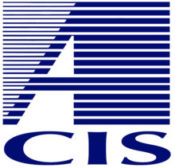SERA 2025 Special Sessions
Special Session 1: Artificial Intelligence for Health Literacy Transformation (AIHLT 2025)
Topic Description:
In recent years, the intersection of health literacy and artificial intelligence (AI) has emerged as a transformative area of research, aiming to bridge gaps in healthcare information exchange, accessibility, and informed decision-making. Health literacy, the ability to obtain, process, and understand basic health information, remains a critical factor in achieving equitable healthcare outcomes. The integration of AI in this domain offers unprecedented opportunities to enhance individual and community-level understanding. By improving the accessibility and clarity of health information, AI supports informed decision-making, empowers individuals to better navigate healthcare systems, and addresses varied informational needs.
The Artificial Intelligence for Health Literacy Transformation Special Session at The 23rd IEEE/ACIS International Conference on Software Engineering, Management and Applications (SERA 2025) seeks to bring together interdisciplinary researchers and practitioners to address challenges and showcase innovations at the nexus of health literacy and AI. This session aims to explore how AI-driven methods and tools can improve the design, delivery, and assessment of health information, while also addressing disparities in health literacy. The session will highlight advancements in Information Science, Natural Language Processing (NLP), Machine Learning (ML), and user-centered design to foster equitable healthcare outcomes.
The scope of AIHLT 2025 includes, but is not limited to, the following topics:
- AI aims to improve health information accessibility
- Multilingual health information processing
- Health Information processing in minority languages
- AI-enhanced tools for health literacy assessment and improvement
- NLP models for simplifying medical jargon and enhancing comprehension
- Personalized health education using AI-based recommendation systems
- Machine learning approaches for predicting and mitigating health literacy Disparities
- Interactive AI-driven systems for patient education and engagement
- Real-time monitoring and analysis of health literacy trends using AI
- AI for multilingual and multicultural health communication
- Explainable AI in health communication to build trust and transparency
- Applications of conversational agents and chatbots for health literacy
- Adaptive learning systems for improving individual and community health Literacy
- Data-driven approaches to addressing misinformation and promoting health Awareness
- The role of AI in enhancing digital health tools for diverse populations
- Ethical considerations in deploying AI for health literacy improvements
- Statistical analysis and evaluation of AI systems in health communication
- Applications in public health campaigns, mental health literacy, and chronic disease management
« This workshop is organized as part of the MeCare project, funded by the Villa Albertine Transatlantic Research Partnership »
Special Session Organizers:
Amel Fraisse, Université de Lille – GERIICO Lab – France, Email: amel.fraisse@univ-lille.fr
Special Session 2: Transformative Technologies: Big Data, Machine Learning, Cybersecurity, and Blockchain for the Next Era of Digital Innovation
Big Data, Machine Learning, Deep Learning, Cybersecurity, and Blockchain are transformative fields that are driving advancements in academic research and redefining our understanding of technology in the digital era. This session seeks to bring together scholars, researchers, and domain experts to explore the challenges, innovative methodologies, and future trajectories within these interconnected areas.
Topics for discussion include, but are not limited to:
-Big Data Analytics and Insights
-Machine Learning and Deep Learning applications
-Cybersecurity in the era of data explosion
-Blockchain and Decentralized Technologies
-Intersection of innovations Across Domains
Special Session Organizer:
Jongyeop Kim, Georgia Southern University, e-mail: Jongyeopkim@georgiasouthern.edu
Paper Submission:
Click here to submit your paper
List of Reviewers:
Takaaki Goto, Toyo University
Hong Liu, Indiana University Kokomo
Jongho Seol, Middle Georgia State University
Donghoon Kim, Arkansas State University
Seungmo Kim, Georgia Southern university
Abhilash Kancharla, The University of Tampa
Lei Chen, Georgia Southern University
Yao Xu, Georgia Southern University
Vijayalakshmi Ramasamy, Georgia Southern University
Hong Cheng, Southern Arkansas University
Yang Liu, Indiana University Kokomo
Special Session 3: Intelligent System and Software: Theory and Application
This special session targets the following topics, which include but are not limited to:
[Theory] Algorithms, Formal methods, Data structure, Complexity, Fuzzy theory, Logic, Others
[ Applications] AI applications, Software development environment, CAI application, Experimental support systems, Web applications, Human-centered designs, Others
Special Session Organizer:
Takaaki Goto, Toyo University, e-mail: tg@gotolab.net
Paper Submission:
Please submit your paper for review to the workshop organizer: Takkaki Goto, Email: tg@gotolab.net
Send your full paper in two column format (not to exceed 8 single-spaced pages) in PDF format. For paper templates, please go to http://www.ieee.org/conferences_events/conferences/publishing/templates.html
List of Reviewers:
Tadaaki Kirishima (Toyo University, Japan), kirishima@toyo.jp
Yasunori Shiono (Tokyo University of Technology, Japan), shionoyn@stf.teu.ac.jp
Toshihiro Yoshizumi (Kaetsu University, Japan), toshihiro.yoshizumi.ev@gmail.com
Soumya Sen (A.K.Choudhury School of IT, University of Calcutta, India), iamsoumyasen@gmail.com
Partha Ghosh (Academy of Technology, Adisaptagram, India), pghosh44@gmail.com
George Anderson (University of Botswana, Botswana), georgeganderson@gmail.com
